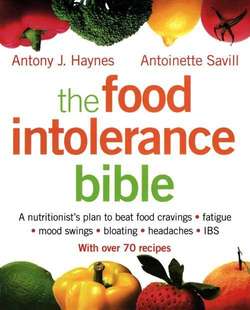Читать книгу The Food Intolerance Bible: A nutritionist's plan to beat food cravings, fatigue, mood swings, bloating, headaches and IBS - Antoinette Savill, Antoinette Savill - Страница 15
Food Intolerances and Emotional/Behavioural Issues
ОглавлениеWhile it is much more straightforward to understand a link between what you put in your mouth and what happens to your digestion, it is less obvious to see the relationship between what you eat and how you feel in your head, or how you behave. However, as you will see later in this book, there are many food-intolerance symptoms that do not affect digestion.
Your digestive system is designed to absorb tiny components from food to nourish your body. However, it is not always 100 per cent successful at preventing the absorption of some matter that can be harmful to or upset the functioning of various organs elsewhere in the body (including the brain). This has long been the subject of published studies, and the basis for clinical treatment. As long ago as 1916, a Dr Hoobler reported that infants can be intolerant to proteins. Since that time, other studies have identified that reactions to foods can cause hyperactivity, nervousness, learning problems, minimal brain dysfunction, depression, hostility, aggression, periods of confusion and irritability. In those days the distinction between allergy and intolerance had yet to be made, so researchers simply used the word ‘allergy’ to cover all symptoms and consequences.
If you ever doubted that your irritability, mood swings, clumsiness or brain fog could be the direct result of a food intolerance, then you will swiftly strengthen your resolve when you hear the following accounts.
